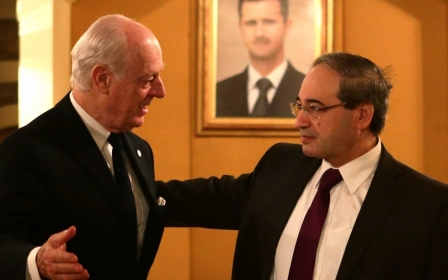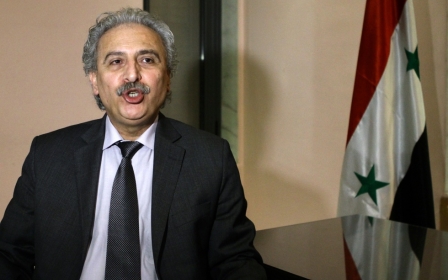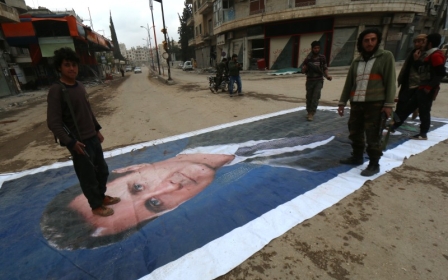Iran to play 'major' role in Syria talks, says EU chief

Iran can play a major role in persuading Syrian President Bashar al-Assad to cooperate in peace talks, EU foreign affairs chief Federica Mogherini said on Tuesday.
Mogherini spoke to reporters ahead of a meeting in New York with Iranian Foreign Minister Mohammad Javad Zarif focused on finalising the nuclear deal reached this month, as well as approaching regional crises.
A final nuclear deal with Iran "could open the way to a different role for Iran in the region," Mogherini told reporters at UN headquarters.
Arguing that it would be "naive" to ignore the Islamic republic, Mogherini said the best approach would be to "call on Iran to play a major, but positive, role in the region”.
On Syria, in particular, Iran can "encourage the regime to participate in a Syrian-led transition," Mogherini said.
The statements came a day after the US said that it would agree to participate in UN-led talks on Syria even if Iran was participating.
"We support efforts to restart meaningful dialogue on a political track aimed at a solution based on the 2012 Geneva Communique," a State Department official said on Monday.
UN peace envoy Staffan de Mistura will next Monday begin a new round of talks in Geneva with various parties to the Syrian conflict with a view to launching full negotiations to end the four-year war, possibly in late June.
De Mistura said Iran was invited to take part in the discussions, the first since the second Geneva conference mediated by Lakhdar Brahimi collapsed in early 2014.
Also invited is the Democratic Union Party (PYD), a Kurdish political party affiliated with the People’s Protection Units (YPG), which has been co-ordinating with Syrian rebel fighters to battle Islamic State in the north of the country.
Despite official statements regarding the possibility for Iran to play a role in talks, De Mistura also told the Security Council during a closed-door meeting that prospects for a political transition were slim.
Iran was excluded from two peace conferences held in Geneva on Syria.
Iran is President Assad's main regional ally and has acknowledged sending military advisers to Syria. It has however denied having combat troops on the ground.
Lebanon’s Hezbollah, which is backed by Iran, has sent fighters to bolster Assad’s forces.
Mogherini said work on finalising the framework nuclear agreement with Iran was moving forward.
"I'm confident that we can proceed with the good work," she said.
Iran and the five permanent members of the UN Security Council - Britain, China, France, Russia and the United States - plus Germany are drafting a final nuclear accord due by 30 June.
The agreement is intended to ensure the wholly peaceful nature of Iran's nuclear activities in exchange for the lifting of international sanctions imposed since 2006.
New MEE newsletter: Jerusalem Dispatch
Sign up to get the latest insights and analysis on Israel-Palestine, alongside Turkey Unpacked and other MEE newsletters
Middle East Eye delivers independent and unrivalled coverage and analysis of the Middle East, North Africa and beyond. To learn more about republishing this content and the associated fees, please fill out this form. More about MEE can be found here.




